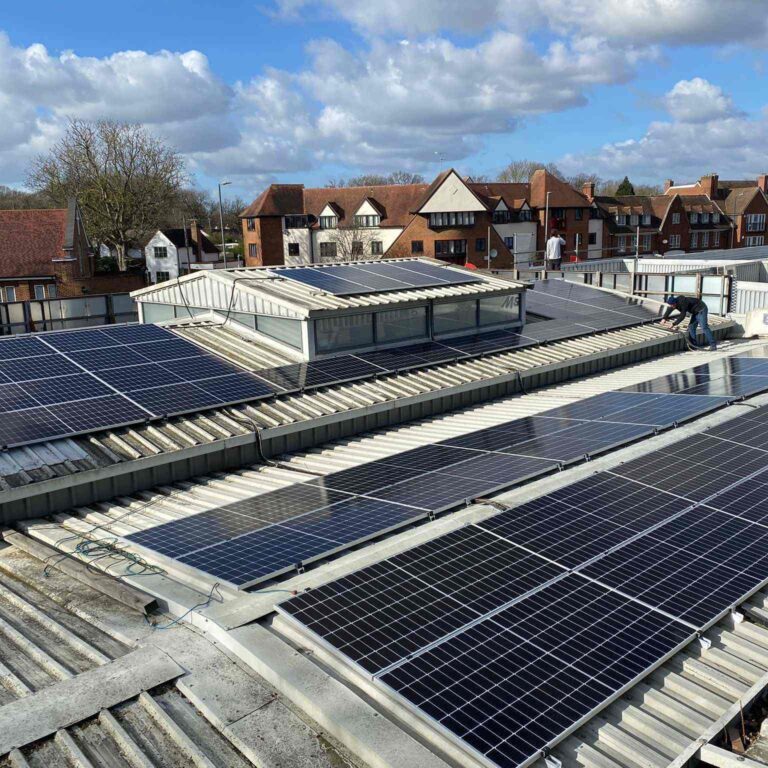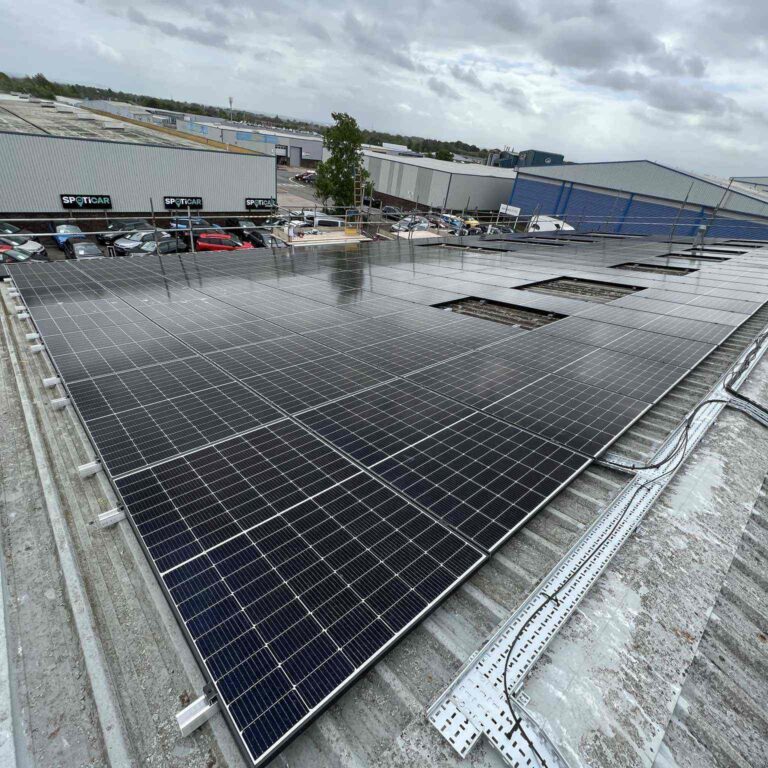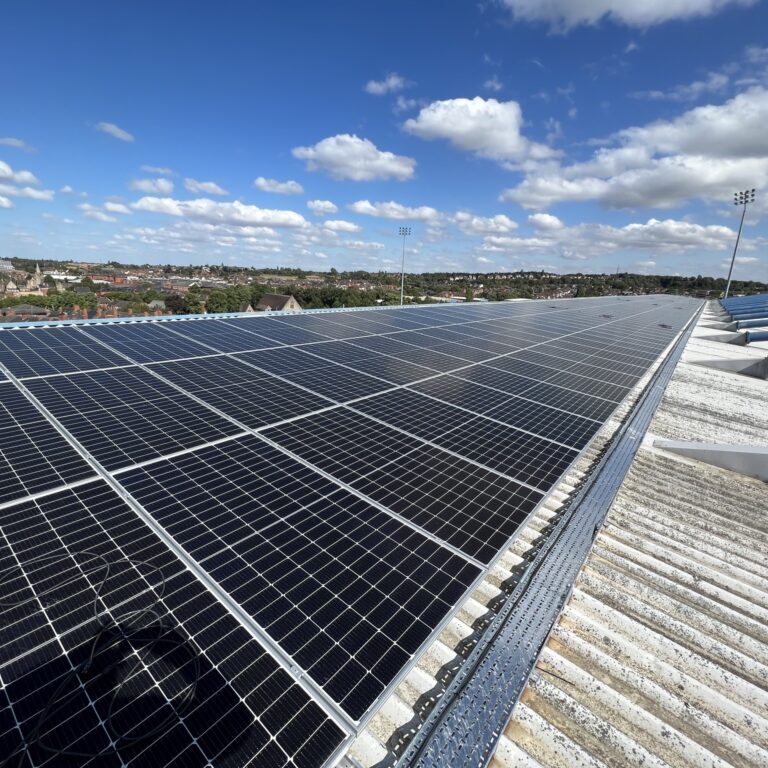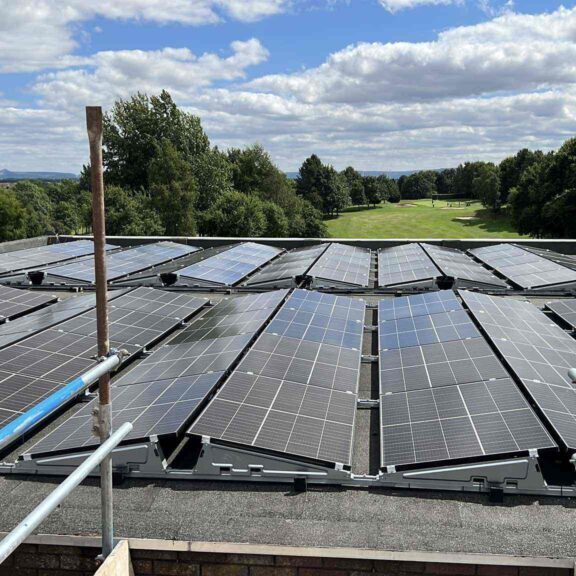As UK businesses increasingly turn to solar energy to reduce operational costs and improve sustainability, understanding commercial solar energy contracts becomes essential. These contracts, whether they involve power purchase agreements (PPAs), leases, or direct purchases, define the terms under which your business will benefit from solar energy. Choosing the right contract can have a significant impact on your financial returns and long-term energy strategy. This article will provide insights into commercial solar energy contracts, helping you make informed decisions that align with your business goals.
The Importance of Understanding Commercial Solar Energy Contracts
Commercial solar energy contracts are complex agreements that outline the responsibilities, costs, and benefits associated with installing and maintaining a solar energy system. For businesses in the UK, understanding these contracts is crucial for maximizing the financial and environmental benefits of solar energy. The right contract can lead to substantial savings on energy bills, while a poorly understood agreement could result in unexpected costs or lower-than-expected returns.
Before committing to any commercial solar energy contract, it’s essential to thoroughly understand the different types of agreements available, their key components, and what to look for when negotiating terms.
Types of Commercial Solar Energy Contracts
There are several types of commercial solar energy contracts available to UK businesses, each with its own advantages and considerations. The most common types are power purchase agreements (PPAs), solar leases, and direct purchases. Let’s explore each option in detail.
1. Power Purchase Agreements (PPAs)
A power purchase agreement (PPA) is a popular choice for businesses looking to benefit from solar energy without the upfront capital investment. Under a PPA, a third-party provider installs, owns, and maintains the solar energy system on your property. In return, your business agrees to purchase the electricity generated by the system at a predetermined rate, typically lower than the current market rate.
Key Considerations for PPAs:
- Energy Pricing: The rate at which you purchase electricity under a PPA is a critical factor. Ensure that the rate is competitive and offers substantial savings compared to your current energy costs. Additionally, some PPAs include an escalation clause, which allows the provider to increase the rate over time. Understand how this clause works and how it may affect your long-term savings.
- Contract Length: PPAs are typically long-term contracts, often ranging from 15 to 25 years. Ensure that the contract length aligns with your business’s long-term plans and consider any potential changes in energy needs or business operations over this period.
- Ownership and Maintenance: With a PPA, the third-party provider retains ownership of the solar energy system, which means they are responsible for maintenance, repairs, and system performance. Ensure that the contract clearly outlines the provider’s obligations and the process for addressing any issues that arise.
2. Solar Leases
A solar lease is another option for businesses that want to avoid the upfront costs of purchasing a solar energy system. Similar to a PPA, a solar lease involves a third-party provider installing and maintaining the system on your property. However, instead of purchasing the electricity generated, you pay a fixed monthly lease payment for the use of the system.
Key Considerations for Solar Leases:
- Lease Payments: The monthly lease payment should be lower than your current energy costs to ensure savings. It’s essential to understand how the payment is calculated and whether it is subject to annual increases.
- System Ownership: In a solar lease agreement, the third-party provider retains ownership of the system. This means they are responsible for maintenance and repairs, but it also means you won’t benefit from government incentives or depreciation, as you don’t own the system.
- End of Lease Options: Solar leases typically have terms of 10 to 20 years. At the end of the lease, you may have the option to purchase the system, renew the lease, or have the system removed. Ensure that the contract clearly outlines these options and any associated costs.
3. Direct Purchase
For businesses with the capital to invest upfront, direct purchase of a solar energy system can offer the greatest long-term financial benefits. When you purchase a system outright, your business owns the solar panels and all the electricity they generate. This option provides the highest potential savings, as you avoid paying a third party for the energy produced.
Key Considerations for Direct Purchases:
- Upfront Costs: While direct purchase offers the greatest financial return, it also requires the highest upfront investment. Consider whether your business has the capital to cover the initial costs and weigh this against the long-term savings.
- Incentives and Tax Benefits: In the UK, businesses that purchase solar energy systems may be eligible for government incentives, such as the Enhanced Capital Allowance (ECA) scheme, which allows businesses to write off the cost of their investment against taxable profits. Additionally, you may benefit from the Smart Export Guarantee (SEG), which pays you for excess electricity exported to the grid.
- Maintenance and Operation: As the owner of the system, your business is responsible for maintenance, repairs, and monitoring system performance. Ensure you have a plan in place for these responsibilities or consider contracting a maintenance provider.
What to Look for in a Commercial Solar Energy Contract
Regardless of the type of commercial solar energy contract you choose, there are several key elements you should carefully review before signing:
1. Clear Pricing Structure
The pricing structure should be transparent and easy to understand. For PPAs and leases, ensure that the cost of electricity or lease payments provides meaningful savings compared to your current energy costs. Be aware of any clauses that allow for price increases and understand how they will impact your savings over time.
2. Performance Guarantees
A reliable commercial solar energy contract should include performance guarantees that specify the expected energy production of the system. These guarantees protect your business by ensuring that the system will generate the amount of electricity promised by the provider. If the system underperforms, the contract should outline the remedies available, such as reduced payments or system upgrades.
3. Maintenance and Repair Responsibilities
Clearly defined maintenance and repair responsibilities are crucial for ensuring the long-term efficiency of your solar energy system. The contract should specify who is responsible for regular maintenance, system monitoring, and any necessary repairs. For PPAs and leases, these responsibilities typically fall to the third-party provider, but it’s important to confirm this in writing.
4. Contract Flexibility and Transferability
Businesses evolve, and your energy needs may change over time. Look for a commercial solar energy contract that offers flexibility, such as the ability to adjust the system size or energy purchase terms as your business grows. Additionally, consider the contract’s transferability if you plan to sell the property or move your operations. A well-drafted contract should allow for the transfer of the agreement to a new owner or location.
5. Termination Clauses
Understanding the termination clauses in your commercial solar energy contract is essential. These clauses outline the circumstances under which the contract can be terminated, as well as any associated penalties or costs. Review these clauses carefully to ensure they are fair and reasonable.
Conclusion: Making an Informed Decision
Choosing the right commercial solar energy contract is a critical step in your business’s journey toward sustainability and energy independence. By understanding the different types of contracts available, including PPAs, leases, and direct purchases, you can select the option that best aligns with your financial goals and operational needs.
When reviewing a commercial solar energy contract, pay close attention to pricing structures, performance guarantees, maintenance responsibilities, and termination clauses. By taking the time to thoroughly understand these elements, you can make an informed decision that maximizes the benefits of solar energy for your business.
For UK companies, the transition to solar energy represents a strategic investment in both environmental responsibility and long-term cost savings. With the right commercial solar energy contract, your business can enjoy the financial and environmental rewards of solar power for years to come.



